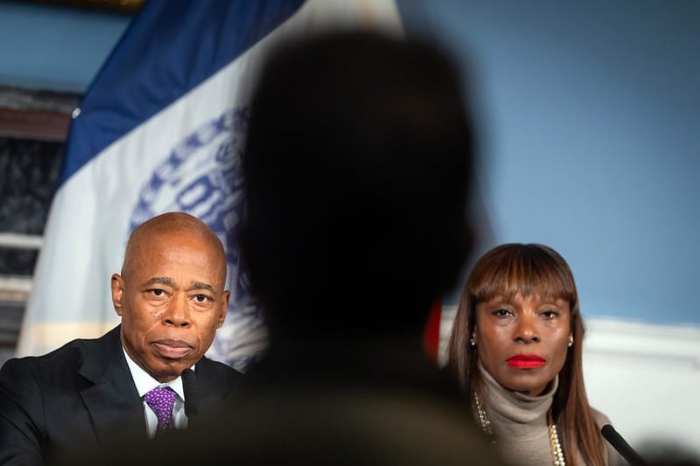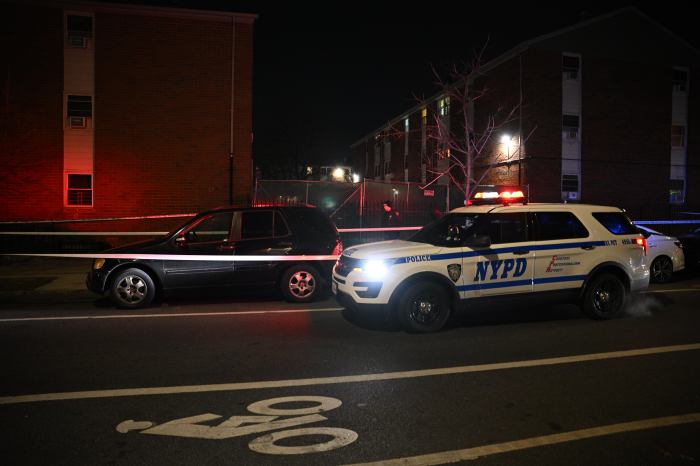
A longtime Queens resident and electrician is finally free to breathe a sigh of relief after a nearly decadelong saga wrestling over his immigration status.
Braulio Cobos, 51, of Richmond Hill, last month secured his green card with the help of a dedicated lawyer — 28 years after he first crossed the border at El Paso as a young adult, and nine years after an abrupt, unexpected arrest landed him in a Louisiana detention center, jeopardizing the life he had built with his family in New York City.
“Finally, we’re breathing now, after all this,” said Cobos on a recent afternoon, in the office of his attorney, Pankaj Malik of Warshaw Burstein. His wife, Karina, and his 15-year-old son David sat nearby.
Cobos explained that his journey in the United States began in 1991, when at 23-years-old he was taken into custody by immigration officers in Texas. Originally from Ecuador, he had been studying in Mexico and decided to travel to New York City, where an aunt of his resided. Once in custody, the attorney he was assigned instructed him to sign documents that, allegedly, would guarantee his release — and for a time, they did.

What Cobos did not know, however, was that he had signed a voluntary departure order, meaning he must leave the country within 60 days or risk deportation. He did not speak English at the time he signed the papers, he said, and his lawyer had not sufficiently explained the circumstances.
He was aware his immigration status was tenuous, but there were few resources available to assist him in next steps, as he struggled to build a life for himself in Corona, Queens. He was working part-time while going to school and learning English, all while searching out legal assistance.
“It was lawyer after lawyer, looking for someone to give me hope, any way for me to get legal in this country,” he said. “I went to so many lawyers and spent a ton of money, trying to see who can help me and find a way for me to be legal.”
Within six years of moving to Queens, he met the woman — an American citizen — who would become his wife. They had two children together and eventually married. He worked as an electrical contractor, establishing his own business in 2007. Years later, Karina opened a restaurant to live out her passion for cooking, and Braulioe applied for a green card. Now that he was married to an American citizen, it seemed the anxieties plaguing his immigration status could finally be put to rest.
“My life started to become a little bit more stable in terms of working, in terms of financing my house,” he said. “I got to buy the things that my wife needs, my kids need. I was starting to get better in the way of money, but I [was] still illegal, so that was one of the fears that I had.”

Just days after Karina’s restaurant made its debut, in July of 2010, Braulio dropped her off at the establishment early in the morning so she could open up. He returned home to care for the children, who were then ages five and nine. At 6 a.m., four immigration officers showed up at his home to place him in handcuffs. His green card application had dredged up the voluntary departure order he had unknowingly signed as a 23-year-old.
After being held temporarily in New Jersey, he was sent to Louisiana, where he was held for five months. That’s when Karina found attorney Pankaj Malik, who would be at the family’s side for the ensuing nine-year battle.
“Every week I think, while he was away, [Karina] would come and she would be crying in my office,” recalled Malik. “I lost so much sleep over this case.”
After unsuccessfully wrestling with the immigration courts in both Texas and Louisiana, Malik appealed before the Board of Immigration Appeals and Braulio was released shortly before Thanksgiving. What ensued was a yearslong struggle to appear before a judge in Manhattan and secure his green card. These cases are incredibly difficult to navigate, explained Malik, because the law is not black-and-white, but is constantly shifting with each change in administration and within Immigration and Customs Enforcement (ICE). Plus, said Malik, previous attorneys working for Cobos had made some missteps.
“The problem is, by the time it came to me, it was already devastating,” said Malik. “The whole case was so complicated to get through because he was already in detention, they were not going to let him go, and it was a challenge.”

But in March of this year, on Karina’s birthday, Cobos received his green card in the mail. His family’s protracted nightmare was over. For years they had been in limbo, he explained, living with the fear that he would have to leave. And if he left, his family would go with him, effectively uprooting their lives.
“It was very painful, especially for my kids,” said Cobos. “The moment I really didn’t want to happen in my life was when they picked me up and my kids were like, ‘What’s going on?’ They were devastated. That was the hardest part in my life.”
The kids, now 15 and 19, are still haunted by the separation, he said.
After nearly three decades of being unable to see his mother, Cobos traveled to Ecuador — she was very sick, and she died soon after. He wishes he could have spent more time with her, that the process of obtaining his card hadn’t consumed so much of his life.
But the nightmare is over now — and the first order of business is to have fun. The family hopes to take a cruise, to travel somewhere together outside of the United States for the first time.

“It was very hard, but now we feel so happy,” said Karina. “We can travel together. We can relax.”



































